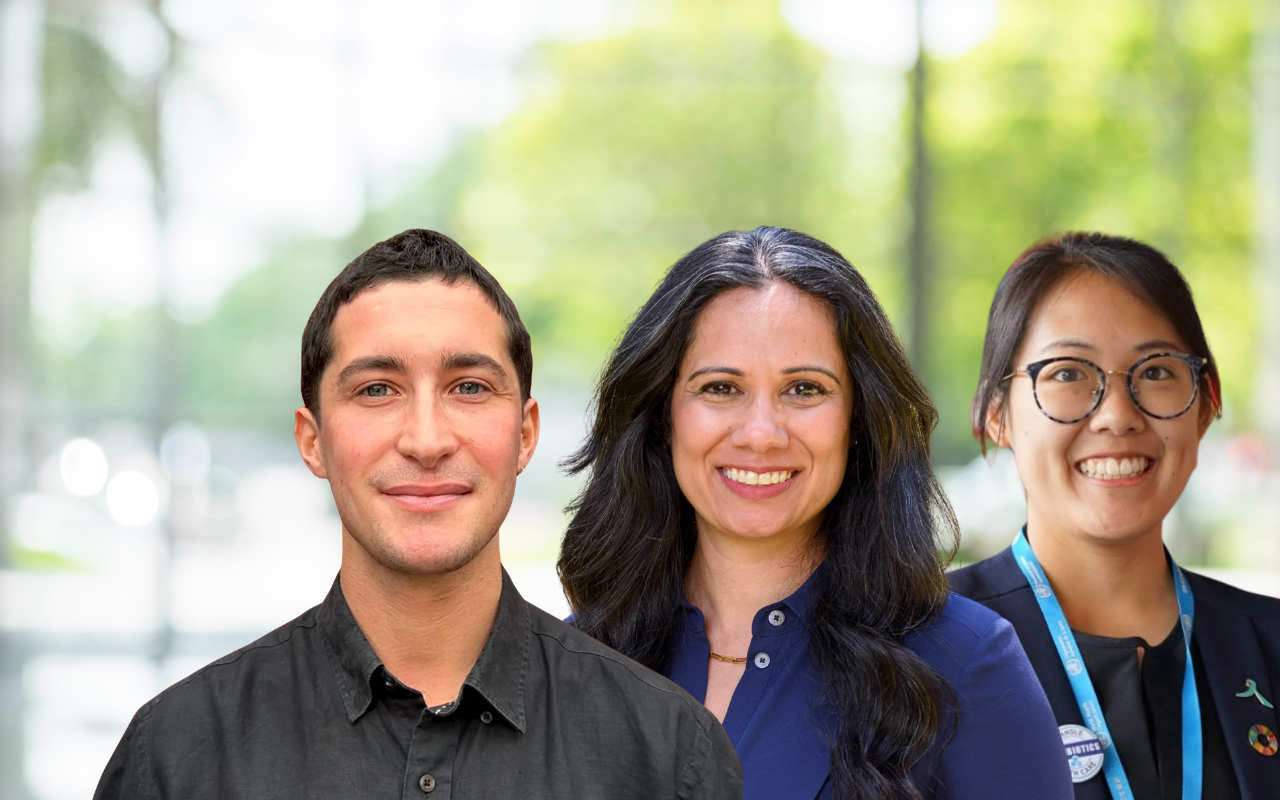Australia’s current and future doctors must be educated and equipped to provide healthcare in the face of the escalating climate crisis, the health impacts of which have been starkly outlined in the recently released National Climate Risk Assessment.
The Federal Government’s recently announced 2035 emissions reduction targets have been criticised as insufficient to protect public health from the threats of climate change, and have brought into sharp focus repeated approvals for fossil fuel projects that worsen these threats.
As climate change increasingly disrupts the environmental, social and economic determinants of health, there is a growing recognition that the health workforce must not only be clinically competent but also adequately prepared to respond to the health impacts of a rapidly changing planet. The principles of planetary health, which recognise the inextricable link between human health and the state of the natural systems that support it, are foundational to this shift.
The Australian Government’s National Health and Climate Strategy, released in December 2023, explicitly supports “embedding climate and sustainability into health education and training” (Action 4.5), recognising that a workforce equipped to lead on climate resilience and emissions reduction is critical to a low carbon, climate-resilient health system. This national commitment coincided with the release of updated Australian Medical Council (AMC) Accreditation Standards for Primary Medical Programs and Prevocational Training, which embedded planetary health as a core educational requirement for all medical schools, as well as those who provide training for junior doctors across Australia.
This year, the AMC concluded public consultation on its Specialist Medical Program Accreditation Standards Review, seeking feedback on how best to embed environmental sustainability, climate resilience and planetary health principles across all stages of specialist training. Together, these reforms mark a coordinated, system-wide shift in medical education, ensuring every medical student, junior doctor and specialist graduate has a foundational understanding of the health impacts of climate change and the principles of sustainable healthcare.

Doctors for the Environment leading the way
In this context, Doctors for the Environment Australia (DEA) has emerged as a national leader in climate-health advocacy and education. Working in close partnership with medical students, universities, specialty training colleges, the Australian Medical Association (AMA) and government bodies, DEA has played a central role in accelerating the integration of planetary health across the medical education continuum.
A recent example is DEA’s newly published Climate Grand Rounds Guide. This is a practical, evidence-informed resource to support health professionals in delivering educational grand rounds on planetary health within their local hospitals. Long regarded as a cornerstone of medical education, grand rounds remain a powerful forum for interdisciplinary engagement across specialties and training levels. The guide offers suggested structures, tips and topic prompts to help clinicians deliver impactful presentations on the health effects of climate change, sustainable healthcare delivery, and climate justice. The guide is geared to local health networks and aims to transform teaching spaces into catalysts for change.
DEA’s leadership extends into nationwide, student-led initiatives. In 2024, DEA and the Australian Medical Students Association (AMSA) pioneered the introduction of the Planetary Health Report Card (PHRC) in Australia and Aotearoa New Zealand. The PHRC is a global, student-led initiative that assesses medical schools across domains, including curriculum, research, community engagement, support for student advocacy, and campus sustainability. By equipping students with tools to benchmark and advocate for improvements, the PHRC drives meaningful curriculum reform, student-faculty partnerships and institutional accountability.
This builds on previous contributions made by DEA in the planetary health and education space, including the Planetary Health – Organ System Map, a nationally recognised curriculum framework for medical school education. Developed in collaboration with academic educators and students, the Organ System Map explores climate and sustainability content according to organ systems, a pedagogical framework widely used throughout Australian preclinical medical education. Since its publication, the Organ System Map has informed medical curriculum change in Australia and overseas, ensuring our future doctors are equipped to practise climate-resilient and environmentally sustainable healthcare.
To further this momentum, DEA is now leading a new specialty-based Planetary Health Curriculum Mapping Project, collaborating with educators, trainees and specialty colleges to identify and embed climate-health learning outcomes into medical training at all levels. The two-phase project involves developing specialty-specific literature reviews on climate and health, followed by their application to inform educational resources. The project responds to the need for high-quality, evidence-based materials to educate doctors on climate-health risks, and sustainable, low-carbon care. Several institutions, including specialty colleges, have expressed interest in partnering with DEA on this project. The Royal Australian and New Zealand College of Obstetricians and Gynaecologists (RANZCOG) is already collaborating on this project to inform the development of continued medical education (CME) for trainees and fellows, in addition to patient education resources.
A call to action
With strong institutional and policy support along with growing momentum across the medical education landscape, now is the time for the healthcare sector — including clinicians, educators, trainees and institutions — to engage with planetary health. Whether by integrating sustainability into teaching, advocating for curriculum change, delivering a climate-focused grand round, or mentoring student-led initiatives, there are opportunities for everyone to contribute.
Given the escalating health impacts of climate change, our medical education system must respond by equipping every clinician with the knowledge and skills to provide environmentally sustainable and climate-resilient care.
Several other educational resources are freely available on the DEA website, including podcasts, webinars, fact sheets, a Sustainable Conference Guide and the GreenCollege guidelines.
Dr Grant Silbert MD BA DipLang is Co-chair of the Medical Education Committee, Doctors for the Environment Australia.
Dr Sonia Chanchlani MB BCH BAO MHM MPH CHIA AFRACMA GAICD is Co-chair of the Medical Education Committee, Doctors for the Environment Australia.
Dr Caroline Lee BMed BSc(Med)Hons MD MPHTM is Deputy Convenor of the Sustainable Healthcare Special Interest Group, Doctors for the Environment Australia.
The statements or opinions expressed in this article reflect the views of the authors and do not necessarily represent the official policy of the AMA, the MJA or InSight+ unless so stated.
Subscribe to the free InSight+ weekly newsletter here. It is available to all readers, not just registered medical practitioners.
If you would like to submit an article for consideration, send a Word version to mjainsight-editor@ampco.com.au.

 more_vert
more_vert